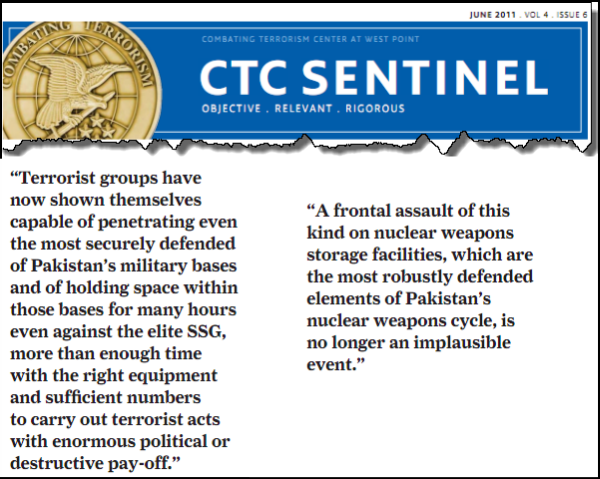The retired politician should just retire. If Peter Reith wanted to continue to be a major agent of change — I hesitate to use the “reform” word to describe his ideas — he should not have retired from Parliament. But having chosen to quit after being instrumental in the Liberal Party adopting politicians that led to its defeat, he should now stay retired. Tony Abbott was a wise man in not voting to give him the platform of the party’s presidency.
The nonsense of international finance. They send some people to jail for running Ponzi schemes where you borrow from new investors to pretend you can repay old ones. Yet that is what the finance ministers and bankers of Europe — with a little help from the International Monetary Fund — and trying to do with Greece. They are pretending that by lending more money to a bankrupt country that there is nothing wrong with existing loans. It will surely end in financial tears with the only question being when.
Radicals in the Pakistan army create a nuclear risk. It is hardly reassuring to read of a prominent Pakistani nuclear scientist worrying about the infiltration of radicals into his country’s army with the result that the security establishment is incapable of protecting the nation’s nuclear weapons. According to nuclear physics professor Pervez Hoodbhoy, Pakistani leaders are in a “state of denial” about the security of the nation’s nuclear weapons. The successful US commando raid on Osama bin Laden’s compound in Abbottabad and the militant siege of a Karachi naval base had drawn attention to weaknesses within the Pakistani military.
“It doesn’t matter whether Pakistan’s chief of army staff Ashfaq Parvez Kayani swears on the Koran that he will make sure that nuclear weapons will be safe. The question is, does he have the power to do that?”
“It seems to me that the Pakistan army is playing with fire. It knows that these nuclear weapons are ultimately in the hands of their own people and their own people have been affected by decades of radicalisation. They may claim that they have personnel reliability tests, but I don’t believe that answering questions on a form may indicate his intentions.”
… “We have seen the infiltration of radicals into the ranks of the army. Very recently, a brigadier and four majors have been arrested. And our brigadiers are in charge of missile regiments too. So where things could go, I don’t know.”
The Quaid-e-Azam University professor is not alone in being concerned at Pakistani nuclear weapons falling into radical hands. The West Point military academy based Combating Terrorism Center’s magazine, Sentinel, has an article addressing “several worrying trends in Pakistan that are coming together to suggest that the safety and security of nuclear weapons materials in Pakistan may very well be compromised at some point in the future.”
Shaun Gregory, director of the Pakistan Security Unit at the University of Bradford in Britain writes that two high-profile attacks by terrorists on highly secure military bases in Pakistan have renewed international anxiety about the safety and security of Pakistan’s nuclear arsenal.

Going global has its problems. According to a new OECD report, disruptive shocks to the global economy are likely to become more frequent and cause greater economic and societal hardship. And its the increasing interconnectivity of the global economy and speed with which people, goods and data travel that are to blame.
“Future Global Shocks” analyses five potential major risks in the years ahead: a pandemic, a cyber attack disrupting critical infrastructure, a financial crisis, socio-economic unrest and a geomagnetic storm. The OECD argues that policy makers should:
- Step-up efforts to acquire and share data and a variety of simulation models to better anticipate and assess potential shocks;
- Increase resources allocated to surveillance and monitoring of threats and early warning systems;
- Take an internationally co-ordinated approach that reduces or stops threats before they proliferate worldwide;
- Improve international co-operation and incentives to promote diversity in critical systems;
- Enhance multi-stakeholder partnerships, information sharing, consultations, capacity building stress tests, and drills.
Shedding a little light on a grubby world. No, it’s not the confrontation between the Hawke women. The sordid thing is the way that Qantas curries favour with the rich and powerful with its so-called Chairman’s Lounge. Special facilities for the chosen few captains of industry and the country’s political leeches are the reason that the national carrier continues to get favoured treatment.







The Chairman’s Lounge has always been a mystery to me ie: who is invited to join… and is it for life? Because one must be invited to join, membership doesn’t depend on whether you’re Australia’s most frequent flyer or if you won Australian Idol.
Former prime ministers get entree – but do sons and daughters of former PMs also get a guernsey? Perhaps Crikey could do a piece on this, Ben Sandilands, where are you?